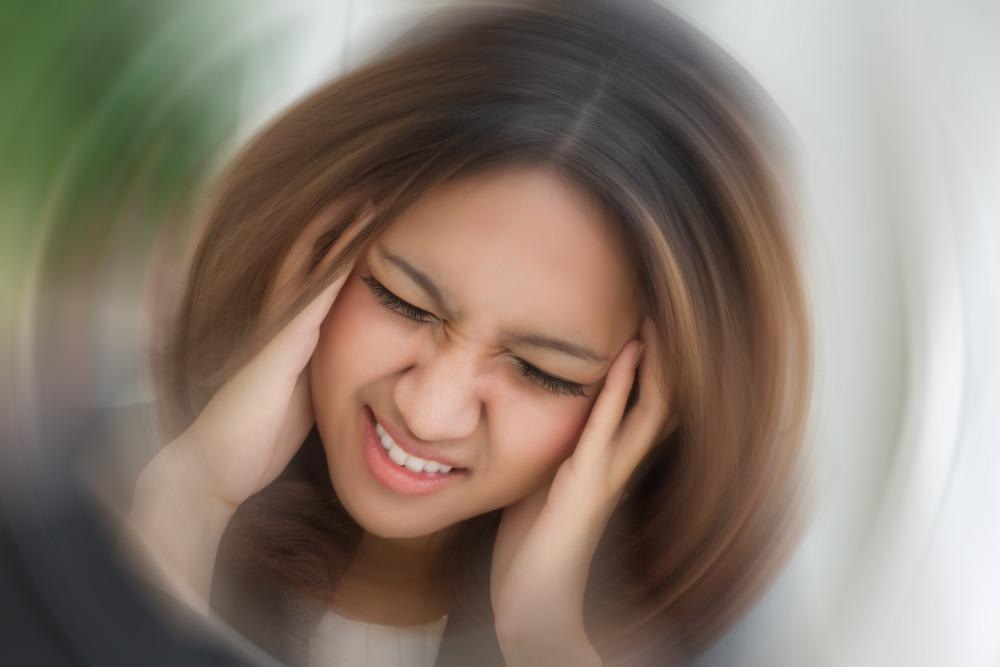Several persistent yet nonspecific symptoms have been reported in individuals who have previously recovered from infection with the severe acute respiratory syndrome coronavirus 2 (SARS-CoV-2). This phenomenon has been referred to as long coronavirus disease 2019 (COVID-19), post-COVID syndrome, and post-acute sequelae of SARS-CoV-2 infection (PASC).
Although no viral load is detected in these patients, they experience various symptoms ranging from respiratory concerns and neurologic disabilities to gastrointestinal (GI) disease and orthostatic intolerance. To date, the risk factors associated with the development of PASC have not been fully elucidated.

Study: Ongoing Dizziness Following Acute COVID-19 Infection: A Single Center Pediatric Case Series. Image Credit: 9nong / Shutterstock.com
A new Pediatrics study describes the experience of treating pediatric PASC patients with persistent dizziness.
About the study
The current study involved the preparation of a retrospective chart review for patients who were referred for persistent dizziness to pediatric cardiology between July 2021 and December 2021. All referred patients underwent active standing testing (AST) at the initial consultation. The complete patient history was obtained by the pediatric cardiologist at each visit.
A baseline electrocardiogram (ECG) was performed for all patients. Several patients also underwent additional testing that included cardiopulmonary exercise testing, cardiac monitoring, echocardiogram, and/or laboratory testing.
Symptom severity was categorized as mild, moderate, or severe according to guidelines provided by the United States National Institutes of Health (NIH). All patients were followed up one to two weeks after initial therapy or change in therapies. The total follow-up period was approximately two months.
Study findings
A total of nine patients with a median age of 14 were included in the study. Daily dizziness, unsteadiness, and light-headedness were reported by all patients.
The time from acute SARS-CoV-2 infection to symptom onset was reported to be seven days. All patients attended school and even participated in competitive sports before the onset of their symptoms.
Out of the nine patients, four were previously diagnosed with anxiety and one reported occasional positional dizziness before their COVID-19 diagnosis. Mild acute symptoms of SARS-CoV-2 infection were experienced by all patients, most of which included fever and upper respiratory symptoms. One patient was reported to be fully vaccinated before their COVID-19 diagnosis.
Many patients also reported extreme fatigue, along with alterations in their daily activities. Out of the four patients with pre-COVID anxiety, two reported a significant increase in their anxiety symptoms, while one required hospitalization.
In five patients, the AST results were consistent with a postural orthostatic tachycardia syndrome (POTS) diagnosis, while the other four were diagnosed with orthostatic intolerance. The ECG results for all patients were reported to be normal.
All patients initially received non-pharmacologic therapy (NPT), which included increased fluid uptake, exercise, use of compression garments, improved sleep, and increased calorie uptake. Thereafter, the patients continued their treatment through the COVID recovery clinic followed by certain supplementary therapies.
No improvement in dizziness was observed with NPT alone. Thus, all POTS patients, as well as three patients without POTS, were prescribed various medications such as beta-blockers, fludrocortisone, and midodrine, depending on the clinical scenario.
Four out of the five POTS patients, as well as one patient without POTS, exhibited complete resolution of their dizziness within one week of beginning their medication. Several patients also reported improved concentration, as well as a reduction in fatigue, and could resume school and sports.
Taken together, the current study found that a combination of medications and lifestyle changes can help to combat dizziness in pediatric patients who have recovered from COVID-19. Additional studies are required to understand the causes of dizziness in these patients, as well as develop more effective treatments.
Limitations
The current study had a small sample size, lacked a control group, and was only conducted for a short period of time. Additionally, the equipment used throughout the study was limited. Furthermore, an association between POTS and anxiety could not be drawn.
Journal reference:
- Drogalis-Kim, D., Kramer, C., & Duran, S. (2022). Ongoing Dizziness Following Acute COVID-19 Infection: A Single Center Pediatric Case Series. Pediatrics. doi:10.1542/peds.2022-056860.